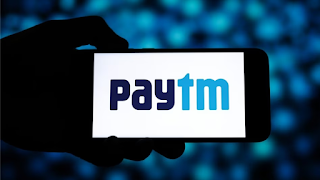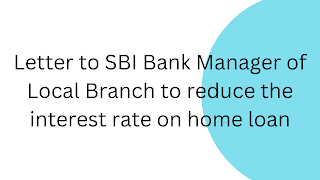Reserved Bank of India has ordered PayTM Payments Bank to stop banking activities
 |
| Reserved Bank of India has ordered PayTM Payments Bank to stop banking activities |
India has the best online payment methods in the world. With the Unified Payment Interface, it has been much easier for anyone to do online transactions, which is free of cost. UPI services are so easy to handle that even vegetable vendors in India have registered merchant accounts to accept online transactions. Sending money to a friend or relative having a different bank account than yourself has also become much easier. Today, I, who has an account in UCO Bank can receive my monthly allowance from my father who has an account in SBI Bank very easily and with no charges.
Paytm is India's one of the leading online UPI payment apps. It is the acronym for pay through mobile. It is an Indian multinational financial technology company, that specializes in digital payments and financial services, based in Noida, India. It was founded in 2010 by Vijay Shekhar Sharma under One97 Communications. The company offers mobile payment services to consumers and enables merchants to receive payments through its QR code, Payment Soundbox, Android-based point-of-sale machine and online payment gateway offerings. In partnership with financial institutions, Paytm offers financial services such as micro-loans and buy now, pay later to its consumers and merchants.[5] Apart from bill payments and money transfers, the company also provides ticketing services, retail brokerage products and online games.
Recently the company has been facing challenges regarding its banking operations in India.
Several violations of regulatory norms, including rules related to money laundering and related-party transactions, and repeated failure to heed warnings from the Reserve Bank of India (RBI) over an extended period were the primary reasons why the banking regulator ordered Paytm Payments Bank Ltd to stop a bulk of its activities from February 29, people directly aware of the matter said, requesting anonymity.
Faulty KYC processes
A system audit conducted by the RBI into Paytm Payments Bank found several lapses pertaining to adherence to anti-money laundering laws regarding know-your-customer (KYC) documents, according to the people cited above. The RBI found that the company did not conduct proper background checks on the source of funds before onboarding clients, they said.
“There were large volumes of transactions via merchant accounts where the audit found that proper KYC measures were not taken to establish the origin of funds,” one of the people cited above said. “The KYC during onboarding was sometimes inadequate and done by partner firms with which the payments bank had a tie-up. Despite this, the bank went ahead and allowed these merchants to transact,” a person cited above said. “Even if the money is flowing from within the banking system, the entities must ensure proper documentation so that no dubious funds are moved around,” the person said. “Accordingly, a show cause notice was issued to the company,” the person added.
A detailed questionnaire to the spokespeople for RBI and Paytm group in this regard remained unanswered.
The second issue was regular related-party transactions with other Paytm group companies, the people said, adding that the banking regulator found that the payments bank was not following proper measures to ring-fence itself from potential conflict of interest. “Due to the high level of interdependence between Paytm Payments Bank and other group entities, the RBI was concerned that the autonomy of the payments bank was in question and that founder Vijay Shekhar Sharma had indirect control over the bank’s decision-making and operations,” a second person said.
In March 2022, the central bank asked Paytm Payments Bank not to onboard any new clients, an order that remains in force. Affiliate firm Paytm Payment Services generated Rs 149 crore and Rs 372 crore from Paytm Payments Bank by providing services in FY23 and FY22, respectively, according to the latest annual report. In turn, Paytm Payment Services also paid Rs 212 crore and Rs 317 crore to Paytm Payments Bank towards processing charges in FY23 and FY22, respectively, according to the annual report of these companies.
Parent One97 Communications Ltd wholly owns Paytm Payment Services and 49% of Paytm Payments Bank, in which founder Sharma owns 51% in his personal capacity.
Paytm Payments also said it has dues of Rs 620 crore from Paytm Payments Bank, the data showed. Overall, One97 Communications received services worth Rs 1,500 crore from Paytm Payments Bank, while it provided services worth Rs 768 crore to the payments bank, according to the parent’s FY23 annual report.
Complex shareholding
The complex ownership structure of Paytm Payments Bank adds to the central bank’s concerns about related-party transactions, the people cited above added. While One97 Communications owns 49% of the bank, about 10% is owned through a joint venture between Sharma and One97. In addition to this, Sharma also controls One97 through his shareholding and directorship without being tagged as a promoter. The central bank also noted certain vulnerabilities in the IT systems of the lender in terms of cloud, data storage and data privacy, which were also flagged to the company on several occasions, but the regulator found lapses despite warnings.
The emergence of new banking services heralds a transformative shift in the way individuals and businesses engage with financial services. By harnessing the power of technology, fintech companies are democratizing access to banking and driving innovation across the industry. However, navigating the challenges of regulatory compliance, data security, trust-building, and market competition remains imperative for the long-term success of these ventures. As the fintech landscape continues to evolve, collaboration between regulators, industry stakeholders, and consumers will be essential to foster innovation while ensuring the integrity and stability of the financial system. Embracing these challenges as opportunities for growth and adaptation will enable new banking services to thrive in the dynamic digital age.










Comments
Post a Comment